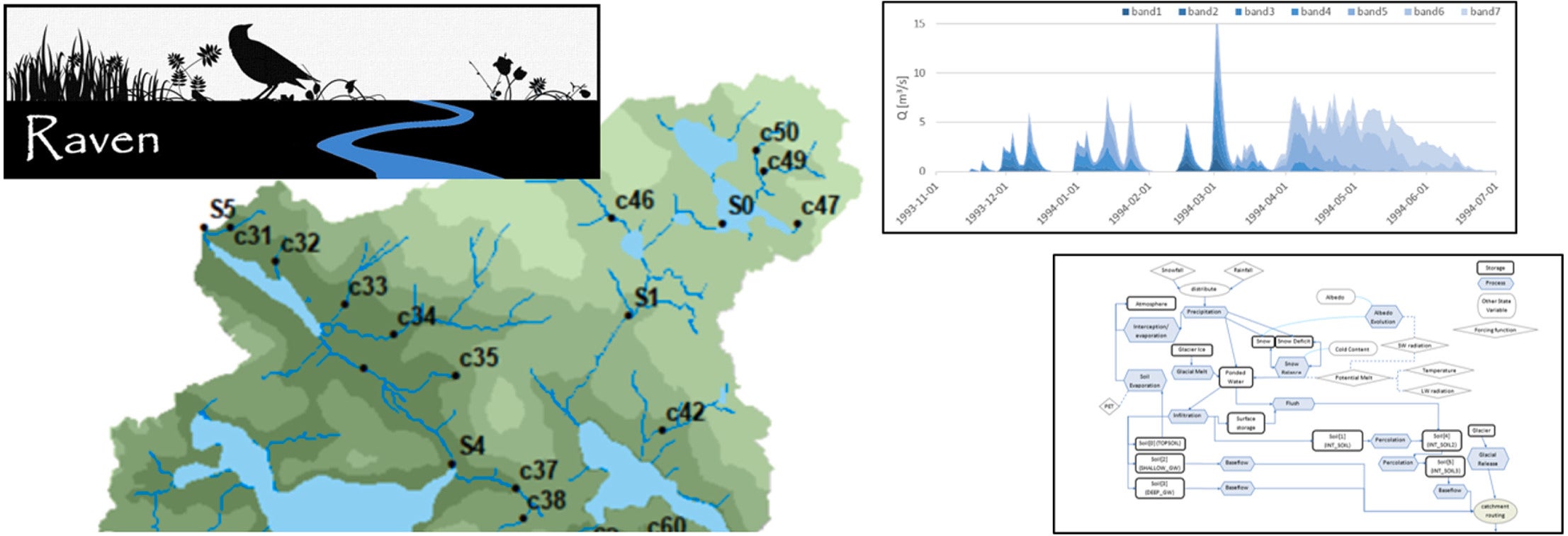
“The Raven development team is very excited to launch version 3. We have spent over 10 years developing this tool in support of both research and practical application to water management problems, and are immensely proud of its success.” Professor James Craig, Water Institute member, associate professor, Civil and Environmental Engineering, Canada Research Chair in Hydrologic Modelling and Analysis
Computational hydrological models, under continuous development for the last half century, have become increasingly complex and varied in their description of the hydrologic cycle. Individual models apply different numerical representations of system processes, many are location specific, and many include parameters that are unknown or unmeasurable. The net effect is the existence of dozens of hydrological models regularly used in practice, with few means available to evaluate the impact or quality of the individual modelling choices they are built from.
Raven is an object-oriented, open-source platform that provides near-complete flexibility in hydrologic model structure, process representations, spatial discretization approaches, interpolation methods, and numerical algorithms. It allows for the vast array of individual model choices to be individually or collectively assessed, opening up the ability to address a number of interesting research questions about how we represent various parts of the water cycle. In addition, Raven includes a number of features which support practitioner needs, such as simulating water management practices, reservoir operations, and land use modifications. Because of this, Raven is currently used by multiple power generation and flood forecasting organizations within Canada, including BC Hydro, TransAlta, New Brunswick Power, Ontario Power Generation, the BC River Forecasting Centre, New Brunswick Water Sciences, and the City of Calgary. The UW computational hydrology research group, which also includes Profs. Bryan Tolson and Juliane Mai, are currently working on a number of research projects that use Raven to answer questions about model identifiability, model structural optimization, regional sensitivity analysis, upscaling of hydrological processes, and model choice.
